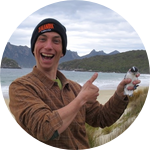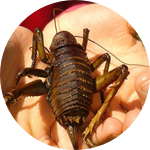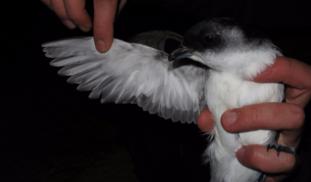Please wait...
About This Project
The South Georgia Diving Petrel is a tiny, highly specialized, wing-propelled diver; a 'flying penguin'. The New Zealand population is nationally critical and numbers 150 individuals only. Storms are the main terrestrial threat, but offshore threats remain unknown. Complete understanding of all threats is paramount to guide successful conservation management. Thanks to generous backers, it may also be possible to assess juvenile mortality to further fine-tune conservation management.

Browse Other Projects on Experiment
Related Projects
Out for blood: Hemoparasites in white-tailed deer from the Shenandoah Valley in Northern Virginia
Our research question centers about the prevalence and diversity of hemoparasites that infect ungulate poplulations...
Using eDNA to examine protected California species in streams at Hastings Reserve
Hastings Reserve is home to three streams that provide critical habitat for sensitive native species. Through...
How do polar bears stay healthy on the world's worst diet?
Polar bears survive almost entirely on seal fat. Yet unlike humans who eat high-fat diets, polar bears never...



